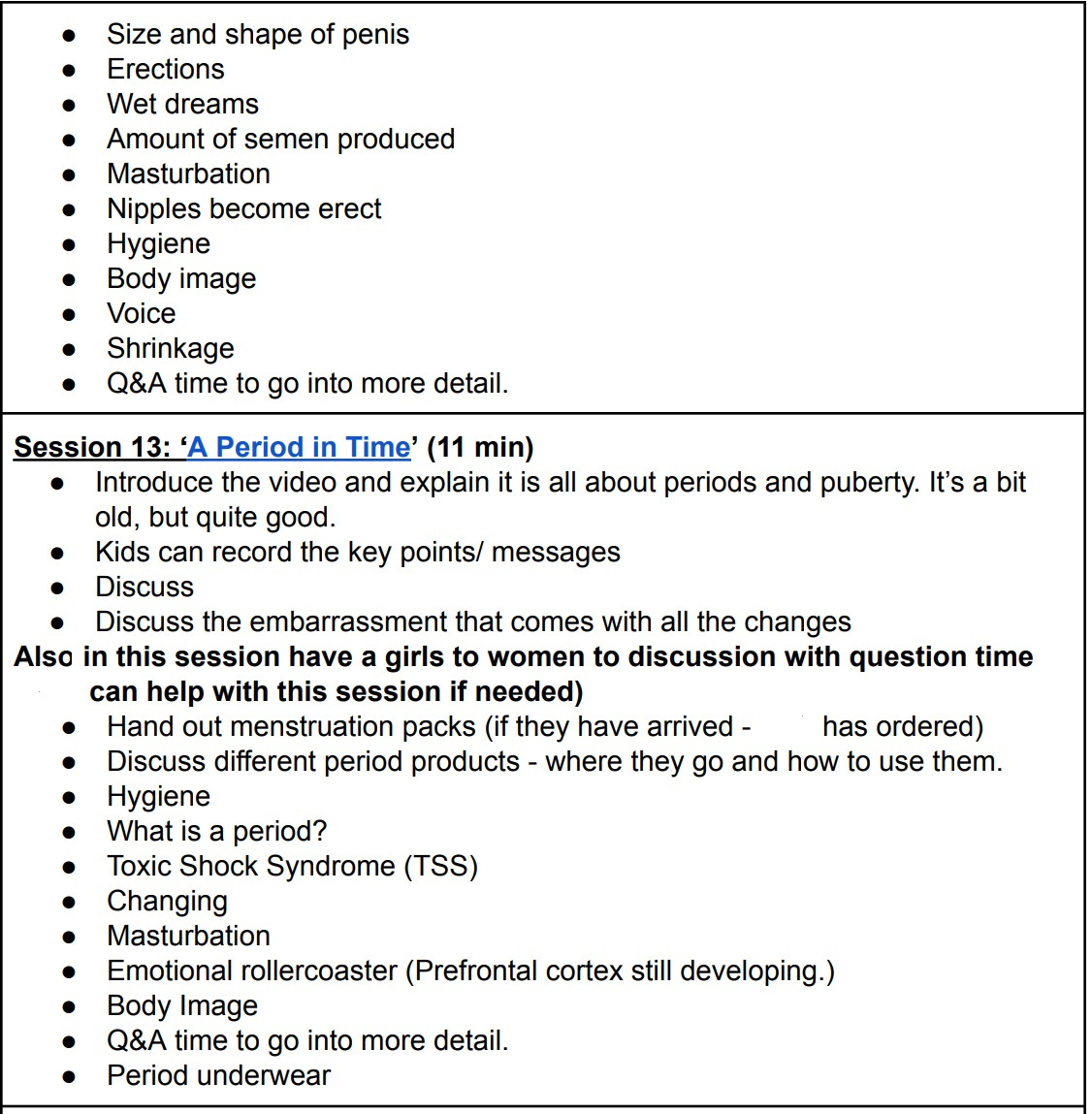Everyone agrees that children deserve to be provided with accurate, positive, and age-appropriate education about sex, sexuality, and relationships. But who decides what is age-appropriate? And, of even more concern, who decides what is accurate and positive?
The law
Relationships and Sexuality Education (RSE) is a compulsory part of the New Zealand Curriculum and must be taught in all schools as part of the Health programme. The Ministry of Education (MOE) has provided guidelines on the recommended content of the RSE lessons but schools are permitted to adjust the content to suit their communities. By law, schools are required to provide full consultation for parents on sexuality education every two years and to be guided by community input. By law, parents are permitted to withdraw their children from specific RSE lessons if they do not wish them to be exposed to the content.
A full critique of the MOE guidelines is here.
Who decides what is age-appropriate?
Recently, a North Island primary school gave parents only two weeks’ notice to respond to its proposed RSE curriculum for Years 5 and 6. These are children aged 10 to 11 years. The proposed content includes the Monty Python Penis song, detailed labelling of genitalia, in depth lessons about puberty and menstruation products, discussion of erections, wet dreams, masturbation, and nipples becoming erect during sexual arousal. Remember, these children are still 5 years away from the age of consent.
Note: Only part of the proposed curriculum is shown above, to preserve the anonymity of its authors.
The school and some parents say this content is age-appropriate because, in our highly-sexualised society, the children have already been exposed to these themes and isn’t it better to provide them with accurate information?
Although it is appropriate to teach about puberty and menstruation at this age because nearly 50% of NZ girls get their first period at intermediate age, parents are wise to ask questions about the very detailed, sexualised content of this proposed curriculum.
The sheer amount of information to be taught (even including toxic shock syndrome) is enough to overwhelm and create anxiety in pre-pubescent children.
Resist Gender Education has an alternative curriculum with lesson plans on its website www.resistgendereducation.nz. Here is how this alternative curriculum handles the same topics:
Who decides what is accurate and positive?
Recommended reading by the North Island school is “Who are You, the kid’s guide to gender identity” by Brook Pessin-Whedbee. This teaches children that when they are born, “grown-ups make a guess by looking at their bodies and this is the sex assigned to you at birth.” It also declares that “there are really many genders” and introduces them to a long list of possibilities: “trans, genderqueer, non-binary, genderfluid, transgender, gender neutral, agender, neutrois, bigender, third gender, two-spirit…”
Such inaccurate, confusing, and potentially destructive ideas do not belong in Health classes for pre-teens. The age-appropriate time for discussion about gender dysphoria and transgenderism is four years later, in Years 9 and 10, when the students are 14-15 years old and have begun to develop critical thinking skills.
Here is how the RGE alternative lessons handle the topics:
What is good community consultation?
For parents to make fully-informed decisions, schools need to consult them in good faith about the RSE curriculum:
There should be a consultation period of at least two months.
ALL materials to be used with their children (including worksheets, videos, and graphics) should be readily available for parental assessment, without having to go into the school.
NO materials should be withheld for copyright reasons.
The school should confirm that all teaching of RSE content will be in dedicated lessons, not embedded throughout the curriculum. Embedding the content thwarts the parents’ right to withdraw their children from certain lessons.
Schools and parents should reach a consensus about what topics will be covered at each level at school and which questions will be referred home for answering.
Parents have an important role in determining what their children will learn in RSE education. It is a legal requirement that schools engage in a meaningful consultation with their communities every two years and are guided by the outcome.
Compulsory education about consent
In 2024 the Health curriculum will come up for its regular review, including whether there should be compulsory education about consent. Consent education is, of course, very important but parents need to be alert to the possibility that teaching about consent will be used as a trojan horse to introduce other topics and remove the ability of parents to withdraw their children from particular content. There will be consultation on any changes to the Health curriculum - parents should ensure they are prepared to contribute in 2024.
For further information about your rights as a parent, parent advocacy, and how to engage with your child’s school, go to www.resistgendereducation.nz.
For an expert opinion of age-appropriate sex education go to Sex Ed Rescue.





